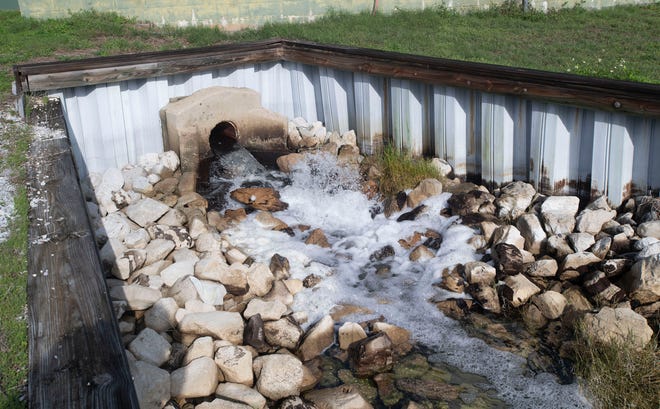Pensacola News Journal – 12/11/2020
Santa Rosa County commissioners voted Thursday night to repeal language in the comprehensive plan that protects drinking water for 86,000 residents by allowing borrow pits to expand in a protected water overlay district in East Milton.
By a vote of 3-2 — with Commissioners Bob Cole, Sam Parker and James Calkins voting “aye” and Dave Piech and Colten Wright voting “nay” — the board repealed language in the comprehensive plan that prohibits the expansion of borrow pits and the extraction of natural resources within the overlay district.
The overlay district is located in East Milton and contains 12 water wells that supply clean drinking water for nearly half the county. The Navarre Area Board of Realtors, Holley-Navarre Water System, Fairpoint Regional Utility System and groups of citizen activists and environmentalists opposed the proposal to change the plan, saying allowing borrow pits to expand within the district directly threatens the drinking water.
“I’m very disappointed in the hesitancy to step forward in a compatible and conservative way,” said Kyle Holley, who has been a clean water activist in the county for several years. “I’m sad, I’m really sad about this.”
County commissioners had directed their staff earlier this year to look at changing the comprehensive plan to allow borrow pits to expand within the overlay district at the request of developers and pit owners who say they need more dirt to support growing construction needs.
Proponents of allowing the pits to expand say it’s a private property rights issue, and the risk to the water supply is minimal if the owners are careful and don’t dump unnecessary or hazardous waste into the pits.
David Phillips, who owns the pits that are going to be expanded, told commissioners Thursday night that he had been inspected by the Florida Department of Environmental Protection three times this year and had “no violations.”
“Every one of my employees pertaining to my operations, from truck drivers to equipment operators, does spotter training courses throughout the years,” Phillips said. “They’re trained on what should be allowed to go to what pit. We do demolition, along with land clearing and a number of different things. Whenever we do that, we know how to separate it out, we know where to carry it and how to dispose of it properly.”
But opponents of the change say that accidents happen, laws are broken and workers can get sloppy, and when they do, the aquifer that charges the water for almost all of the south end of the county is put in jeopardy. Allowing the borrow pits to expand, opponents say, increases the chances for pollution and contamination.
Will Dunaway, an environmental and property rights lawyer who was retained by Holley-Navarre Water System, said keeping the borrow pits from expanding is not a property rights issue, but allowing the pits to expand becomes a property rights issue because it threatens drinking water for properties not located within the protected overlay district.
“You are not taking away anybody’s private property rights,” Dunaway told commissioners Thursday night. “The only people who you are potentially impacting are those who rely on this area for water. That is important.”
Commissioners Piech and Wright opposed the change. Wright made a motion to deny the request, which was seconded by Piech but supported by no one else.
“This is truly about economics. We spent all this money on our economic development office trying to recruit these huge companies to come here, and we’re constantly approving plats,” Wright said. “I am not an anti-development guy. But if we don’t protect this resource, and I realize there’s a certain amount of risk right now and I am not a risk-averse person…I believe in calculated risk, and if we had anything go wrong with our aquifer and damage our drinking water, economically this destroys an entire region.”
Calkins, one of the two new commissioners on the board, said he had “done (his) homework” on the issue and had toured the pit, met with HNWS board members and considered the factors.
Ultimately, Calkins said it boiled down to private property rights for him, and he voted to repeal the language.
“We have different experts on both sides. There are people for this, it’s not a landslide for or against it, it is 50/50,” he said. “If (we) approve this it will go to the state, and the state would have to approve it, and then it would come back to us. I ran on less regulation, I ran on property rights and I got elected on those kinds of things, and I am careful and have investigated as best I can.”
The commissioners’ vote sends the new language to about 12 state agencies for review. It will then come back to the board after the first of the year for a third and final public hearing before becoming law.
Annie Blanks can be reached at [email protected] or 850-435-8632.


Recent Comments